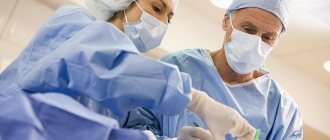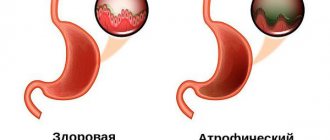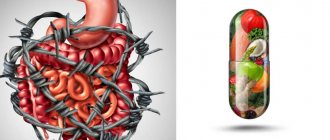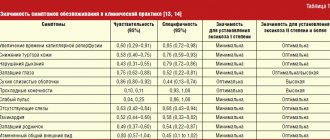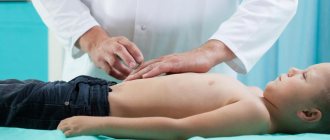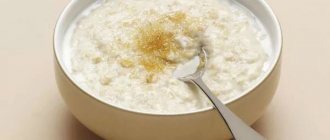What happens to a person after gastric resection? Gastric resection is a surgical treatment of certain stomach diseases (complicated gastric ulcers, stomach tumors, etc.).
Depending on the nature of the operation, there may be total removal of the stomach, Billroth I resection, Billroth II resection and other modifications of operations. In the early stages after surgery, various medical and dietary measures are carried out in the hospital.
We will talk about the lifestyle of patients who underwent gastric surgery 5-6 months ago. I’ll say right away that stomach surgery is not a death sentence. Life after gastrectomy means many years of careful attention to yourself, a good quality of life, and proper nutrition. After the operation, the anatomical features of the gastrointestinal tract change, and the digestive processes in it also change.
Let me remind you that the stomach is the organ where food enters from the oral cavity. It is subjected to deposition, mechanical and chemical processing and evacuation of stomach contents into the intestines. The duration of food in the stomach is from 1 to 3 hours, depending on its nature. After the operation, all functions of the stomach are lost. Nitrogenous substances in protein foods are quickly absorbed into the blood, which leads to disruption of the absorption of nitrogen by the tissues of the body, and nitrogen is excreted in the urine. The nitrogen balance in patients after surgery is disturbed; it becomes negative, i.e. More nitrogen is excreted in the urine than is taken in from protein foods. This leads to weight loss and weakness.
Surgeons should always warn a patient undergoing gastric surgery that the body weight lost before and after the operation cannot be restored, it will remain reduced, but this is not the main thing, the basis is a good quality of life and work capacity.
Operation efficiency
The main question that arises in the context of bariatric surgery is always related to the effectiveness of surgical treatment of obesity. Even at the initial consultation, the patient usually asks the doctor how quickly he can lose weight after surgery, and what final result he can expect.
The answer to the first part of the question is not fast. Surgical treatment is not a “magic pill”, but one of the stages of a comprehensive program aimed at systematic weight loss. Clinical trials have shown that, if the instructions received from the doctor are followed, patients lose from 10 to 15 kilograms within six months. Therefore, if you have to lose 50 kg, set yourself up for one and a half or even two years.
At what point will the weight be fixed? If we are talking about longitudinal gastrectomy (sleeve gastroplasty, or tubular gastrectomy), patients manage to get rid of 65-70% of excess weight.
In practice, the result of surgical intervention can be more impressive, up to complete normalization of the body mass index. Much depends on the patient’s determination, his willingness to change habits, endure difficulties, and work for results. But even if not everything works out, body weight after surgical treatment of obesity steadily goes down and then stabilizes.
Surgical treatment of cancer
The main method of treatment for gastric tumors is their resection. In the initial stages of organ cancer, endoscopic intervention is possible, in which only the area of the mucous membrane affected by the altered cells is removed. The method is minimally invasive. After removal of the stomach in this way, life quickly returns to normal. However, there are often no indications for endoscopic intervention.
The diagnosis of stomach cancer is extremely rarely confirmed in the early stages of the disease; most people undergo radical surgery with partial or complete removal of the organ.
The amount of tissue cut depends on the size of the tumor and the presence of metastases. During the intervention, doctors perform reconstruction of the digestive system. For example, they replace the removed part of the organ with loops of the small intestine. The operation lasts on average from two to five hours. This is followed by a long period of rehabilitation for the cancer patient, aimed at restoring the full functioning of the digestive tract.
The influence of the operation on metabolic processes
Weight loss is an important result of gastrectomy and other bariatric surgeries, but it is not the only one. Moreover, from a medical point of view, as well as in the context of quality and life expectancy, normalization of metabolic processes and regression of chronic diseases that increase the risk of premature death are much more important.
After gastrectomy, the patient's carbohydrate and lipid metabolism improves. This is manifested by a decrease in blood sugar levels on an empty stomach and after meals, a decrease in the concentration of atherogenic low-density lipoproteins (LDL), cholesterol and triglycerides. The sensitivity of cellular receptors to insulin is restored, the risk of fat storage is reduced, and their breakdown and burning is accelerated.
Normalization of metabolism after surgery reduces the risk of developing the following diseases:
- Atherosclerosis.
- Angina pectoris, myocardial infarction.
- Arterial hypertension (“hypertension”).
- Diabetes mellitus type 2.
- Obliterating vascular diseases.
- Acute cerebrovascular accidents, stroke.
We must not forget that reducing body weight helps to avoid degenerative changes in the spine and joints of the lower extremities. Varicose veins are another disease associated with the problem of excess weight. Other dangerous diseases include fatty liver, cirrhosis, and sleep apnea syndrome.
If a patient is diagnosed with diseases associated with metabolic disorders due to excess weight, longitudinal gastrectomy will help achieve stable remission, stop irreversible degenerative processes, improve quality and increase life expectancy.
Information sources
MSK Support Services
Integrative Medicine Service 646-888-0800 www.mskcc.org/integrative-medicine Our Integrative Medicine Service offers patients a variety of services to complement traditional medical care. These include music therapy, mind/body therapy, dance and movement therapy, yoga and touch therapy. She also offers nutrition counseling and dietary supplements.
Resources for Life After Cancer Treatment [RLAC] Program 646-888-8016 At MSK, patient care does not end when active treatment is completed. The Resources for Living After Cancer (RLAC) program is designed for patients who have completed their treatment and their families. This program offers a variety of services, such as seminars, workshops, support groups, and counseling regarding life after treatment. She also helps resolve issues related to health insurance and employment.
External resources
Academy of Nutrition and Dietetics (AND) www.eatright.org/public AND is the professional organization for registered dietitians. The website provides information on the latest nutrition recommendations and research. There you can also find a nutritionist near your place of residence. The Academy also publishes The Complete Food and Nutrition Guide, which provides more than 600 pages of information on food, nutrition, and human health.
American Institute for Cancer Research www.aicr.org 800-843-8114 Provides nutrition and cancer prevention research information and educational materials.
FDA Center for Food Safety and Applied Nutrition www.fda.gov/AboutFDA/CentersOffices/OfficeofFoods/CFSAN/default.htm Provides useful information on food safety.
to come back to the beginning
Nutrition
Longitudinal gastrectomy is the first stage of treatment for a serious disease, which is obesity. The second stage should be considered life after gastrectomy, in which there is no place for old gastronomic habits, but a commitment to a balanced and proper diet that improves health.
Nutrition after surgery is discussed in a special publication; in this article we will focus on the key points. The volume of the stomach after surgery is reduced to 150-200 ml, and therefore you need to eat in small portions. It is recommended to eat at least 5 times a day.
Foods with low nutritional value and high calorie content are permanently excluded from the diet. These include all kinds of sweets (sweets, bars, cakes), baked goods, white bread, sweet drinks, juices. It is strongly recommended to exclude fatty meats, animal fats (lard, butter), and confectionery fat.
The menu is built around products that are rich in essential substances, primarily amino acids. Low-fat sources of protein are welcome: low-fat cottage cheese, lean meat, fish, chicken, turkey, egg white. The body also needs fats of plant origin (found in nuts and seeds), as well as vitamins and minerals, the best sources of which are and remain vegetables, berries, and fruits.
The recommended protein intake is 100 grams/day. It is advisable to limit fats to 50-70 grams. There may be more carbohydrates, up to 200 grams/day, but provided that these are complex “slow” carbohydrates from cereals and vegetables, and not sugar from sweet drinks, buns or cakes. The calorie content of the daily menu is 1600-2000 kilocalories.
Energy requirement
Energy requirement is approximately 1/3 higher than in healthy people, about 30-40 kcal/kg/day:
- Weight 50 kg = 1500-2000 kcal;
- Weight 60 kg = 1800-2400 kcal;
- Weight 70 kg = 2100-2800 kcal;
- Weight 80 kg = 2400-3200 kcal;
- Weight 90 kg = 2700-3600 kcal.
A few simple rules:
- Remember that you have no feeling of hunger and satiety occurs earlier;
- Chew your food well, eat slowly, not too hot and not too cold;
- Do not drink while eating;
- Monitor your weight daily;
- Food should be easily digestible and complete;
- High-quality foods rich in vitamins and minerals are important;
- Nutrient ratio: 55% of the energy value should be carbohydrates, 30% fat and 15% protein.
Well tolerated:
- Fats Boiled meat, grilled meat, fish, fresh butter, margarines, sunflower oil, yogurt, low-fat cheese, 1 tablespoon of sour cream before the main meal, soft-boiled eggs.
- Salads Carrot, green, cucumbers, tomatoes with a small amount of marinade, sour cream or sunflower oil.
- Vegetables Broccoli, cauliflower, kohlrabi, wax beans, spinach, carrots.
- Some varieties of sausages
Avoid:
- Concentrated sweet and flour dishes;
- Meat broths;
- Sweet drinks;
- Milk and dairy products;
- Fried;
- Vegetables and fruits rich in fiber (for example, oranges);
- Smoked;
- Peppered;
- Alcohol.
Drinking regime
Many patients have difficulty drinking. After resection, the stomach is not able to accommodate large amounts of fluid. You have to drink in small portions, and you need to drink often. Don't underestimate the importance of this issue. Dehydration is one of the leading reasons for hospitalization after bariatric surgery.
It is better to drink clean water, without gas. Carbonated drinks create a feeling of fullness in the stomach, in addition, carbon dioxide negatively affects the mucous membrane. Doctors recommend drinking half a glass of water half an hour before meals, and about the same amount 30 minutes after meals. It is also necessary to regularly drink 50-100 ml of water, even if you don’t seem to want to drink.
Physical activity and sports
After gastrectomy and other bariatric surgeries, the patient is recommended to systematically increase physical activity. From the first days after the operation you cannot exercise, you can only walk around the ward or around the house, but after completing the rehabilitation stage you should sign up for the gym. Or choose another type of activity that you like best.
What physical activity is best? Running is a good form of aerobic activity, but at first it may not be the best choice. While running, the knee joints experience axial shock loads, which, if you are overweight, can lead to the development of arthrosis.
The ideal choice after surgery would be long walks in the fresh air, which provide good physical activity and at the same time calm the nervous system. Another great sport is swimming. Strength training in the gym is an acceptable option if your health allows it and the training is approved by your doctor.
How much weight do cancer patients lose?
Losing more than 5% of body weight when no attempt is made to lose weight can be an early sign of cancer. Therefore, unexplained weight loss should not be ignored.
It is unclear what causes cancer wasting syndrome or cancer cachexia. It is assumed that malignant cells replicate exponentially* and consume energy during replication.
*replicate exponentially – increasing over time not only the value, but also the growth rate
Medication support
In this section we are talking about medications, as well as nutritional supplements, that can be prescribed or recommended for an obese patient after longitudinal gastrectomy.
To prevent complications and reduce the acidity of gastric juice, the doctor may prescribe antacids. According to indications, patients are prescribed glucose-lowering and lipid-lowering drugs, which are discontinued after normalization of metabolic processes.
Absorption of nutrients does not suffer after gastric resection, but vitamin complexes, which include calcium, iron, vitamin B12, and vitamin D3, can still be prescribed to prevent hypovitaminosis. To increase protein intake, patients may take amino acid or protein supplements.
The next nuance concerns the release form of medicines. Since the volume of the stomach decreases after resection, taking large tablets and capsules may be accompanied by discomfort. The following forms of release will help to avoid this: powder, gel, syrup, tablets that can be crushed, chewable tablets.
Preventive diet
It has been proven that a healthy and varied diet, quitting smoking, and maintaining a normal weight along with regular physical activity help prevent cancer. There are no foods that definitely lead to malignant processes, but adequate consumption of fruits and vegetables rich in vitamins and microelements while limiting “dark” animal meat helps maintain health. This is a good prevention of malignant processes in the stomach.
Contact a Euroonco specialist to find out how to increase the effectiveness of antitumor treatment, as well as what diet is indicated specifically in your case.
Book a consultation 24 hours a day
+7+7+78
Bibliography:
- Obukhova O.A., Bagrova S.G., Besova N.S. et al. /Assessment of the nutritional status of patients with inoperable gastric cancer at the time of initiation of antitumor treatment. Preliminary results of a prospective observational study // Difficult patient; 2018; 6.
- Potapov A.L., Dorozhkin A.D., Gamayunov S.V. and others /Perioperative nutritional support for gastric cancer: current state of the issue// Siberian Journal of Oncology; 2019; 18(6).
- Snegova A.V., Kononenko I.B., Larionova V.B. and others/Anorexia-cachexia syndrome in cancer patients//Clinical oncohematology; 2015; 2.
- Khomichuk A.L. /Optimization of nutrition for patients after gastrectomy// Questions of dietetics; 2013.
- Fukuda Y., Yamamoto K., Hirao M., et al./Prevalence of Malnutrition Among Gastric Cancer Patients Undergoing Gastrectomy and Optimal Preoperative Nutritional Support for Preventing Surgical Site Infections//Ann Surg Oncol.; Dec 2015; 22 Suppl 3.
- Weimann A., Braga M., Carli F., et al./ ESPEN guideline: Clinical nutrition in surgery // Clin Nutr.; 2022 Jun; 36(3).
Impact of resection on medication use
All people take medications. Some take medications systematically to treat chronic pathologies, while others take them occasionally to relieve headaches, back pain or joint pain. The question is, what medications can you take after resection, and which ones should you avoid?
It is strongly recommended to limit the intake of drugs from the NSAID group. These include acetylsalicylic acid, diclofenac, ibuprofen and others. NSAIDs block the synthesis of protective prostaglandins in the gastric wall, which increases the risk of developing inflammatory processes, gastritis, and peptic ulcers. If you need to take a headache medication, take it after a meal with milk.
Note.
NSAIDs in injection form (shots) are also dangerous.
With the blood, the active substance enters the cells of the stomach, having a similar negative effect. Corticosteroids, which patients with certain pathologies take constantly, are not contraindicated, but it is preferable to use injectable drugs. Unlike NSAIDs, corticosteroids act locally and almost do not penetrate into the blood, which will avoid possible negative effects on the gastric mucosa.
Regarding other drugs, it is appropriate to say the following. Some medications have to be taken in higher dosages because their absorption deteriorates after surgery. This group includes, for example, some antidepressants. In any case, the dose adjustment is carried out gradually and under the supervision of a specialist, to whom you can always ask questions that concern you.
Coffee, nicotine and alcohol
In the first month after surgery, coffee is contraindicated. In the future, drinking one or two cups of coffee per day is allowed, but you need to remember that caffeine increases gastric secretion, and this is not recommended after surgery. Therefore, you should drink coffee only after meals, and not instant, but natural.
With alcohol it's simple. It is better to avoid alcoholic beverages even for healthy people, especially for obese patients after bariatric surgery, and all the talk about the benefits of small portions has no evidence base. Alcohol is contraindicated. Dot.
Smoking? Here everything is even more obvious - it is better to give up the bad habit. Forever.
Eating in restaurants and during social events
At many social events, food takes center stage. Remember that portions at various events and restaurants can be quite large. It usually takes time to get used to eating out at restaurants or attending events such as weddings and dinner parties.
- If you've managed the appetizer, you may find that you need to take the main course with you.
- If you miss an appetizer, try eating only half of your main course and take the rest with you. You can also share the main dish with a friend.
- You may have to choose between a small portion of soup or a drink to stay within your liquid limit. Or you can take just a few small sips of both.
- If you want to grab dessert, you can take it with you and save it for later.
to come back to the beginning
Dream
Sleep is not directly related to the operation, but it does influence its outcome. Good rest helps normalize metabolic processes. People who sleep well have an easier time controlling their appetite. They are less likely to encounter that false feeling of hunger, which often occurs against the background of overwork and fatigue.
To get enough sleep, try to turn off all sources of information (TV, laptop, mobile phone) at least an hour before going to bed. Take a walk in the fresh air in the evening. Do not exercise less than 2 hours before bed, especially in a stuffy gym. Warm baths, meditation practices, auto-training, and relaxing massage help normalize sleep.
Removing the stomach is not a death sentence
Stomach cancer ranks fifth in the world in terms of the number of diagnosed cases of cancer, and second in the structure of mortality from tumors. The most effective treatment method is complete or partial removal of the organ. The operation is complex and requires careful preparation and adherence to the rules of a long rehabilitation period. People who follow all doctors' recommendations have a great chance of living a long, fulfilling life.
Results
Life after gastrectomy is different from what an obese person is used to, but it is almost identical to the lifestyle that is commonly called healthy. The food is nutritious, almost all natural and healthy foods are allowed and even encouraged. There is no need to limit physical activity.
You will not have to take medications for life; moreover, six months or a year after resection, the patient can reduce the dosage or completely stop taking lipid-lowering and hypoglycemic drugs. As for alcohol and smoking, there is a rule that is relevant for everyone - it is better to give up bad habits.
If you still have questions, sign up for a consultation with a specialist at the Weight Loss Center. Branches of the medical center are located in St. Petersburg and Sestroretsk.
Are postoperative complications possible? What is their probability?
It is impossible to guarantee the absence of complications with any operation. In case of prostate cancer, a staple suture is placed along the entire stomach. Although these sutures are performed using high-quality staplers and are always reinforced, there is still a small risk of postoperative bleeding, as well as failure (cutting through) of some sutures, which in rare cases may require laparoscopic or surgical revision. To prevent suture insufficiency in the first two weeks after prostate cancer, nutrition should be in liquid form, without undue stress on the gastric sutures. Since the operation takes place in the area of the splenic hilum, we always warn that if significant bleeding occurs from the spleen, it may be removed. We also warn about this during other gastric surgeries performed due to obesity.
